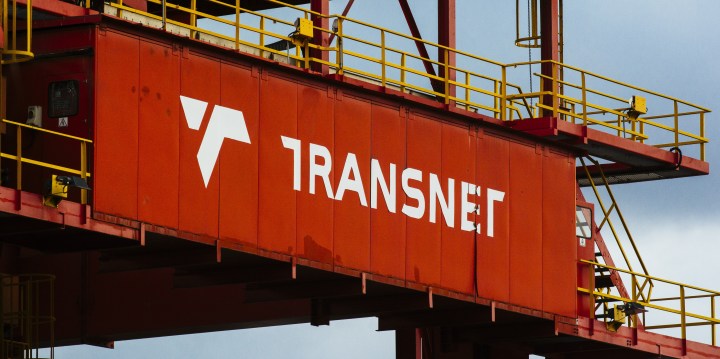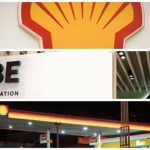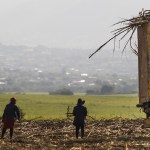PORT OPERATIONS
Philippine logistics firm to the rescue: Transnet embraces private sector as partner for delivery

Transnet is warming to private players helping to fix its port operations. Without such help, the ports will continue to be inefficient, undermining economic growth potential.
With a bang, privatisation is starting to happen at Transnet, the state-owned transport group that operates South Africa’s ports and rail network. Although Transnet is not relinquishing full control of its transport operations, it is starting to embrace the private sector as a partner for delivery.
It has selected International Container Terminal Services Inc (ICTSI), a logistics firm based in the Philippines, with an extensive international footprint, to upgrade and operate a container terminal in Durban over the next 25 years.
It is a big move because Transnet will essentially hand over the keys to ICTSI to run one of the terminals at the port, which is South Africa’s largest and busiest, handling 60% of container volumes. It is also a tacit admission by Transnet that it needs help with running the country’s ports, which have become the world’s worst after many years of neglect and underinvestment by the state-owned enterprise (SOE).
‘A blueprint for how all ports are run’
Andrew Pike, the head of ports, transport and logistics at law firm Bowmans, says it is Transnet’s first move towards any significant private-sector participation in its operations. “It can be a blueprint for how all ports are run and managed,” he says.
Transnet is also in the process of replicating this private-sector participation model at the Ngqura container terminal in the Eastern Cape and at the Richards Bay port in KwaZulu-Natal.
The SOE is not prepared to say whether it is considering a similar arrangement at its other 13 terminals at ports including Cape Town, Saldanha Bay, Gqeberha, East London and Mossel Bay.
“[Transnet] is… leveraging the private sector to drive capacity expansion, improve efficiencies and transform critical areas of the business, not just in the ports but [also at] other critical areas of the business, including rail. A portfolio of initiatives with private-sector participation opportunities across these sectors has been identified,” Transnet told Daily Maverick.
Transnet ports are miles behind in terms of efficiency, container loading and waiting times, and rapidly losing market share and investment attractiveness to more efficient port operators on the African continent.
Transnet’s container ports (mainly Durban and Cape Town) are among the world’s worst, scoring in the bottom ten of the 348 ranked in the World Bank’s latest Container Port Performance Index. Transnet ports (including Nqura) are miles below in terms of efficiency and container loading/waiting times and rapidly losing market share and investment attractiveness to more efficient port operators in the African continent, including Djibouti, Maputo, Somalia, and others.
President Cyril Ramaphosa’s administration is aware of this problem because two years ago, it started a process to open Transnet’s ports for private sector participation, in line with the government’s policy on rail and ports.
And now ICTSI, which operates 32 terminals in 19 countries across six continents, including in Africa where it has partnerships in Nigeria, Democratic Republic of the Congo and Madagascar, will add Durban to its portfolio.
ICTSI will run the Pier 2 container terminal at the Durban port for the next 25 years, with an option to extend to 30 years. Pier 2 is the largest container terminal in the Durban port, with a current installed capacity of 2.2 million 20-foot equivalent units (TEUs), which is a measure of trade volumes at container ports.
But this installed capacity is not being used owing to inefficiencies: the terminal has an average volume throughput of 1.8 million TEUs a year.
Underscoring the poor performance of Transnet’s Durban container terminal is that volume throughput nearly reached 2 million during Transnet’s 2018/2019 financial year but has since been on a downward trajectory.
Durban port expansion plan
Transnet has a plan to upgrade and expand the port terminal to make it more competitive and attract new shipping customers. The Durban port is important for the economy as it is strategically located to access international shipping routes between the Global East and West. The port is also linked by rail and road infrastructure to Gauteng and extends to other major trade corridors.
Transnet wants to expand and deepen berths at the Durban port terminal by 2029 to accommodate larger vessels. Successfully deepening the berths will enable Transnet to increase its installed capacity to 2.9 million TEUs a year. This will run into billions of rands, which Transnet simply doesn’t have.
Like Eskom, Transnet has debt problems, carrying debt on its financial books worth R127.6-billion at the last count. Transnet’s debt repayment profile has weakened, with lenders being reluctant to borrow the SOE more money.
ICTSI, which beat the other nine short-listed global logistics players, will come to help Transnet by funding the expansion of the container terminal in Durban and run over the next 25 years. ICTSI will also carry the cost of buying equipment that is used to move containers through the port, including cranes, container handlers, and haulers.
ICTSI has a track record of successfully turning around struggling terminals. Bowman’s Pike expects productivity to increase at the Durban container terminal after ICTSI’s intervention. Says Pike:“I expect to see significant automation and modern systems installed at the container terminal. And the obvious implication of this is that jobs may be under threat. That will be part of the tightrope to negotiate with the unions. But it appears that assurances have been given to the unions that there won’t be job losses, which is vital to the success of the project.”
ICTSI will fund the expansion of the container terminal. It will also carry the cost of buying equipment to move containers, including cranes, container handlers and haulers.
Transnet plans to establish a new company or special-purpose vehicle, of which it will own 51% and ICTSI the balance. Transnet has not specified how much money ICTSI plans to pour into the Durban container terminal or how much it will pay for its 49% shareholding in the new company, only saying that ICTSI will be “making an upfront cash payment for the equity stake”.
The new company will also be required by Transnet to have a Broad-Based Black Economic Empowerment (B-BBEE) profile, and adhere to the government’s transformation targets. Transnet says there will not be a local empowerment partner in the new company — inferring that the company will be subjected to B-BBEE requirements on functions including procuring goods and equipment.
Transnet will generate money from the arrangement in two ways: the new company will pay the SOE rental fees for using the land on which port operations and terminals are based, and Transnet might receive dividend payments from the new company as a 51% shareholder, assuming it is profitable and doesn’t have a lot of debt.
After 25 or 30 years, ICTSI will have to give up control and management to Transnet. By then, it is assumed that ICTSI would have generated enough money to recoup the capital it has injected to expand the port.
This arrangement suggests that Transnet and the government are not prepared to give the private sector free rein in controlling and owning ports.
“This is because the government still sees itself as a big player in the economy and a driver of growth. There is also a big trust deficit between the government and private sector,” says Iraj Abedian, an economist and former Transnet board member who has long advocated for the SEO to embrace privatisation. DM
















It takes a very brave company to invest billions in a South African S.O.E in return for a minority stake.. Good luck to them!
With forced black empowerment every single sector in SA has become less efficient. As long as government continues to promote a divisive racist employment policy we will continue to see this happen. Outsourced SOEs will have the same problem with entitlement that we all have.
Why only Durban and not all our ports? I know the City of Cape Town is desperate to get transnet out of its port operations and unlock the value of begin able to competitively import and export goods
Which is almost certainly why Transnet hasn’t chosen Cape Town for private/public ownership. The ANC doesn’t want to see a DA controlled municipality get any more credit for its business savvy.
I’m surprised the ANC even allowed this. Their NDR says no privatisation, and collapse of what there is – all to allow the ANC top people to loot and steal without accountability.
This is as stark an admission as you’ll get from the ANC that cadre deployment and murky contracting has failed at every level of the state. Transnet should be the backbone of the economy and a key driver of increased mining, agriculture and manufacturing output and export, but instead it’s the Gordian Knot of our economy, frustrating efforts at actual job creation and economic progress, rather than sheltered employment in a failed SOE, which is what Transnet, Eskom, SAA and all the other failed ANC-plundered SOEs are.
This is as stark an admission as you’ll get from the ANC that cadre deployment and murky contracting has failed at every level of the state. Transnet should be the backbone of the economy and a key driver of increased mining, agriculture and manufacturing output and export, but instead it’s the Gordian Knot of our economy, frustrating efforts at actual job creation and economic progress, rather than sheltered employment in a failed SOE, which is what Transnet, Eskom, SAA and all the other failed ANC-plundered SOEs are.
And isn’t our own “home-grown” talent, Bidvest, running the port in Maputo?
Somebody has a bulging back pocket!
While increasing the volume handled through the Port of Durban may be a “good thing”, we make this contingent on an at least equal improvement in conditions on the N2 and N3 which will have to cope with the increased volume.
Why, a FOREIGN and NOT a South African company????
Is because SA private companies are less prone to corruption???
And I thought the ANC has BEE as a prerequisite?
Just Asking!!